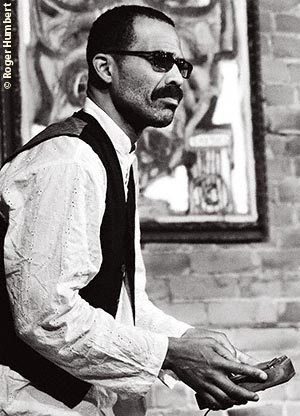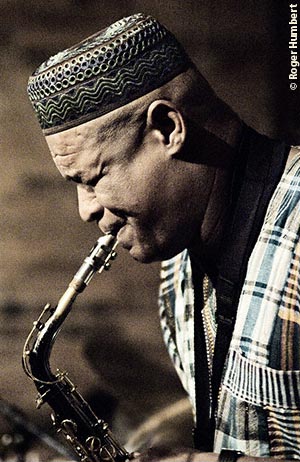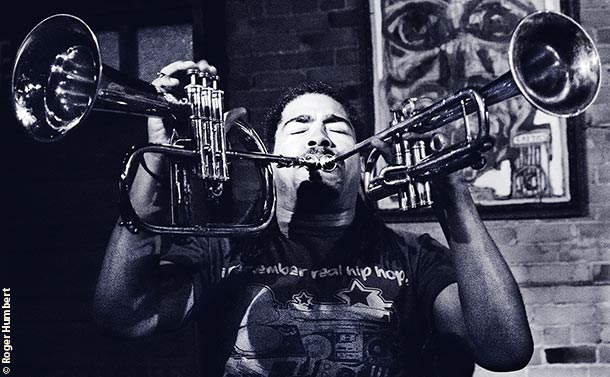| Led by El'Zabar, the mighty trio expressed the range of Afro history and experience, from ancient to today, where it's clear that the voice is still key.
In "Oof", Kahil El'Zabar's thumb piano (kalimba) set down a slow tonic bass line for his voice, which was part chant, lament, and suppressed cry. Dawkins' repeated striking of a cowbell both stabilized and pushed the rhythm on. But trumpeter Corey Wilkes took his time. His smart, beautifully played blues inflections went 'outside', but they came back home, and ended with an attention-getting 'kiss' from the bell of his trumpet. Dawkins' hard-edged alto chipped away at the sing-song structure and came out playing freer and even harder than before. Wilkes' small, rustling wood chimes brought us back to 'one' and the distinctive moaning and intoning voice of leader Kahil El'Zabar.
It seemed that some sort of cycle had just begun.
"Burundi People" opened with Wilkes on African lightning drums and El'Zabar singing and playing jazz drums. After a trumpet and alto line climbed up by 1/2 steps and descended by 1/2 steps, Wilkes embellished his solo segment with slight 'octave effects' triggered by his foot pedal. Behind him, you could hear the descending by 1/2 steps line, now sung by El'Zabar and Dawkins. Then, after a trumpet/alto trill, El'Zabar soloed on jazz drums. He made up for missed opportunities and eventually struck away at his ride and crash cymbals so determinedly that you feared for your ears. We're talkin' 'bout hitting triple forte — drumsticks on cymbals!
El'Zabar's a cappella performance followed. It was just him and the microphone. Crouched over and singing, with many twists and turns in his body and his voice, he'd say, "Wish I knew why I'm so in love with you ... Why no one else will do but you ... Won't you save your love for me?" Perfect. His syllable scat (Bobby McFerrin?) and his pliant, chant-like vocalizing sounded, by turns, African, First Nations, African-American, and always, sounded very human.
Loosely shaken, atmospheric percussion ushered in "Major to Minor" — a roomy space-filled African vibe, a vibe characteristic of the Chicago school. Dawkins crisply shook a metal shaker, Wilkes played lightning drums, and El'Zabar sang and played congas; this developed seamlessly into a blues march and showcase for Wilkes' audacious trumpet and fluegelhorn smears. Wilkes played both horns at the same time.
|
|

Kahil El'Zabar |
|

Ernest 'Khabeer' Dawkins |
|





